- Homepage /
- Blog /
-
Quantum AI: How Quantum Computing Will Redefine Artificial Intelligence and Software Engineering
Quantum AI: How Quantum Computing Will Redefine Artificial Intelligence and Software Engineering

Quantum AI: How Quantum Computing Will Redefine Artificial Intelligence and Software Engineering
1. Introduction
In the race toward digital transformation, Artificial Intelligence has been the defining force of the 2020s. But the next decade belongs to Quantum AI — a fusion of two of the most powerful technologies ever created: AI and quantum computing.
Where AI simulates intelligence, quantum computing accelerates it.
Together, they will reshape how organizations design software, process information, and solve problems previously considered impossible.
Quantum AI isn’t science fiction anymore. Google, IBM, and startups like Rigetti and IonQ are already building the foundations of this revolution. And just as AI redefined business in the 2010s, Quantum AI will redefine it again in the 2030s.
2. What Is Quantum AI?
Quantum AI combines quantum computing — which operates on quantum bits (qubits) instead of traditional bits — with machine learning and AI algorithms.
While classical computers process data sequentially (0 or 1), quantum computers use superposition and entanglement to process multiple possibilities simultaneously.
In simple terms, quantum AI allows algorithms to explore vastly more data points and patterns at once, enabling:
- exponentially faster optimization,
- real-time learning from massive datasets,
- and predictive modeling on scales unimaginable today.
3. Why It Matters for Business
Quantum AI isn’t just a faster computer — it’s a new logic for decision-making.
It will change how software is built, tested, and deployed, and how businesses turn data into intelligence.
A. Hyper-Speed Decision Making
Quantum algorithms can analyze billions of variables at once, enabling financial models, logistics systems, and AI assistants to make decisions in milliseconds.
B. Smarter Predictive Analytics
Machine learning models trained on quantum systems can detect correlations far beyond classical capabilities — ideal for risk management, customer analytics, and personalization.
C. Optimization on a New Level
Quantum AI can solve complex optimization problems like supply chain routing, energy distribution, or drug discovery — tasks that currently take weeks of computation.
D. Competitive Edge in Innovation
Companies that adopt Quantum AI early will gain computational advantage — the same way AI-first companies gained dominance in the 2010s.
4. Quantum AI and the Future of Software Engineering
From Linear Code to Quantum Logic
Software development will evolve from deterministic algorithms to probabilistic design.
Engineers will no longer build systems that output one result — but systems that evaluate many possible outcomes simultaneously.
New Programming Paradigms
Languages like Q# (Microsoft), Qiskit (IBM), and Cirq (Google) are emerging to support hybrid development — where part of an application runs on classical hardware, and part on quantum processors.
AI-Augmented Development
AI copilots will soon help engineers write and debug quantum code, translating classical logic into quantum circuits automatically.
In other words: AI will help humans code AI — on a quantum level.
5. How Quantum AI Will Impact Industries
Finance
Banks will use Quantum AI for ultra-fast fraud detection, real-time portfolio optimization, and hyper-personalized investment strategies.
Goldman Sachs and JPMorgan are already testing quantum algorithms for derivatives pricing.
Healthcare
Quantum AI will simulate molecular interactions at atomic precision, accelerating drug discovery and genomics research.
It will also make predictive diagnostics faster and more accurate.
Manufacturing and Logistics
Quantum-powered optimization will streamline supply chains, reduce energy waste, and anticipate disruptions before they occur.
Cybersecurity
Quantum AI is both a risk and a solution. While quantum decryption could break current cryptography, Quantum Key Distribution (QKD) and AI-based encryption will redefine digital security.
Software and IT Services
Software houses and SaaS providers will shift to quantum-ready architectures, integrating quantum APIs and simulators into cloud environments like AWS Braket and Azure Quantum.
6. Strategic Business Benefits
AdvantageDescriptionComputational AdvantagePerform calculations impossible for classical systems.Faster InsightsCompress years of data processing into seconds.Smarter AutomationTrain models that continuously adapt in real time.SustainabilityReduce energy waste by solving optimization problems efficiently.Innovation LeadershipEarly adopters can create entirely new business models.
Quantum AI isn’t just an upgrade — it’s an innovation multiplier.
7. The Road to Quantum-Ready Businesses
Most organizations won’t own a quantum computer anytime soon — and that’s fine.
The key is quantum readiness — building data, talent, and infrastructure that can integrate quantum capabilities when they mature.
Step 1 – Modernize Infrastructure
Adopt hybrid cloud platforms compatible with quantum APIs.
Step 2 – Develop AI-First Mindset
Integrate machine learning and predictive analytics into every layer of your operations.
Step 3 – Partner Strategically
Collaborate with cloud providers (AWS, Azure, IBM) offering Quantum-as-a-Service (QaaS).
Step 4 – Upskill Teams
Train developers and data scientists in quantum programming basics — Qiskit, Cirq, or Pennylane.
Step 5 – Experiment Early
Start with simulators or hybrid models to gain experience before real quantum hardware becomes mainstream.
8. Challenges on the Way
While Quantum AI promises exponential potential, adoption faces real barriers:
- Hardware limitations: Quantum computers are still sensitive to noise and decoherence.
- High costs: Quantum cloud services remain expensive for large-scale workloads.
- Talent gap: There are fewer than 10,000 quantum engineers globally.
- Ethical and security concerns: Quantum computing could render current encryption obsolete.
Yet, as with every breakthrough technology, the first adopters will define the standards others follow.
9. The Future: Intelligence Beyond Boundaries
In the coming decade, AI models will not only learn from data — they will learn from quantum phenomena.
We’ll see hybrid systems where quantum computers handle pattern recognition while classical systems handle interpretation and UX.
By 2035, Quantum AI will power:
- self-optimizing enterprise platforms,
- AI-driven research labs that autonomously test hypotheses,
- and intelligent cloud ecosystems that adapt to global conditions in real time.
Software will no longer just respond — it will think and evolve.
10. Conclusion
Quantum AI is more than a technological upgrade; it’s the next leap in digital intelligence.
Just as cloud computing made data accessible and AI made it actionable, quantum computing will make intelligence limitless.
For businesses, the question is not if this transformation will happen — but when you’ll be ready for it.
The companies that prepare today will lead the next generation of innovation.
Because in the era of Quantum AI, speed is no longer the advantage — insight is.
Przeglądaj inne artykuły

When to Fire Sellers: Why the Best Marketplaces Grow Faster by Shrinking Supply
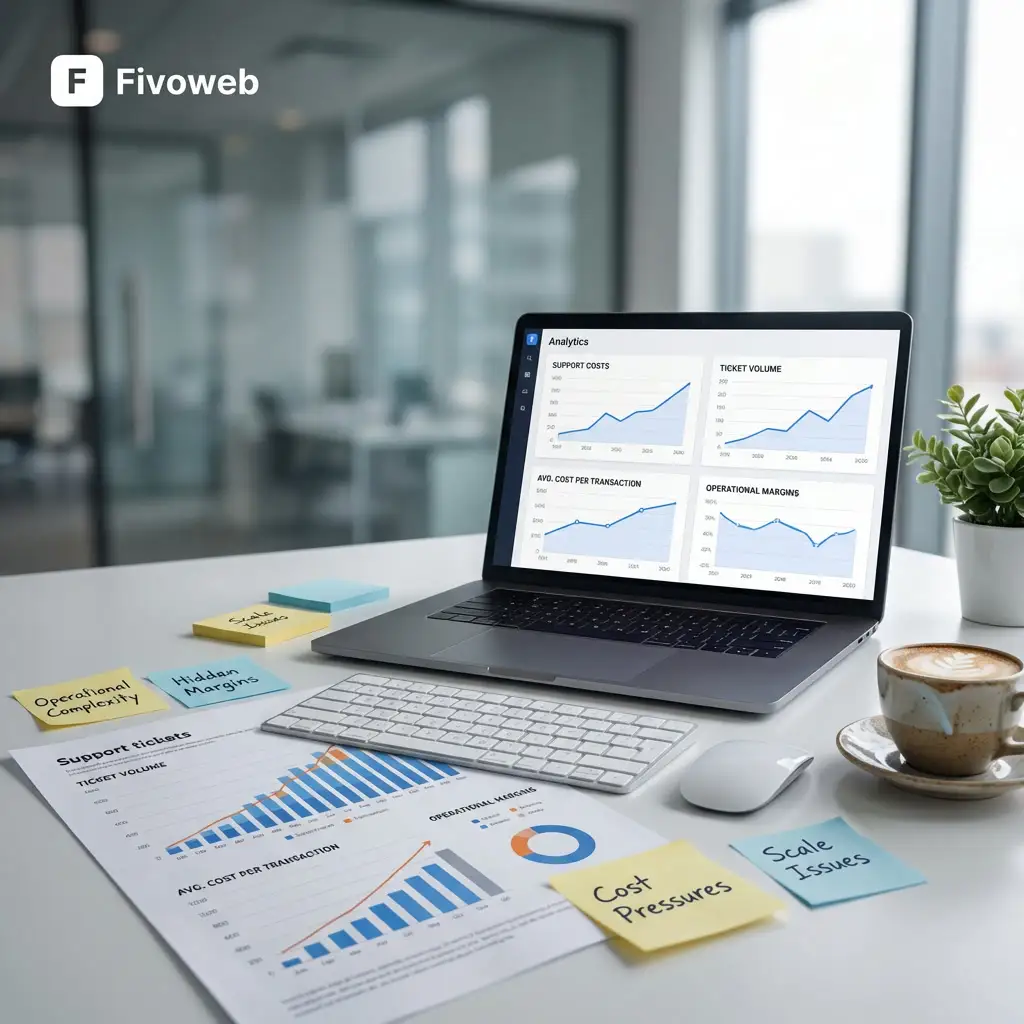
Marketplace Support Costs: The Hidden Margin Killer No One Models
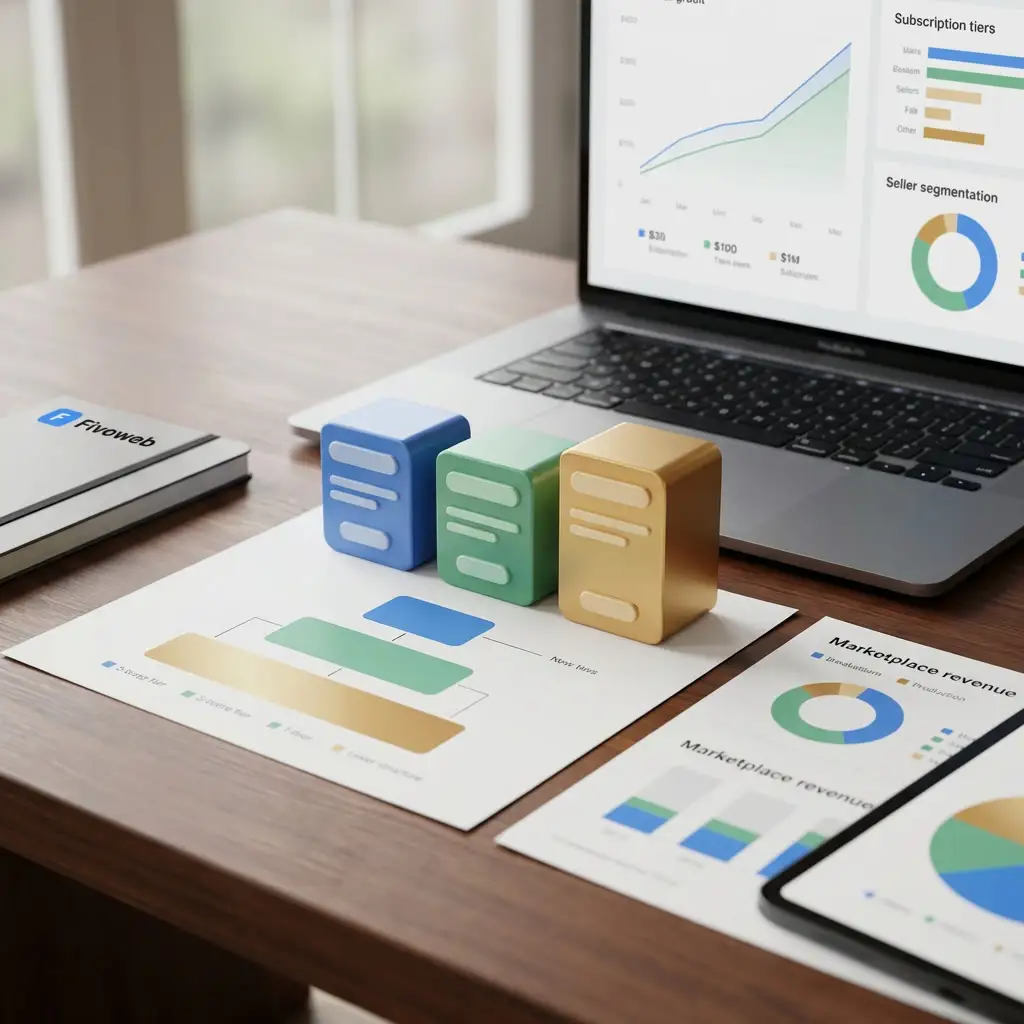
Tiered Pricing Without Backlash: How to Monetize Sellers Without Killing Growth
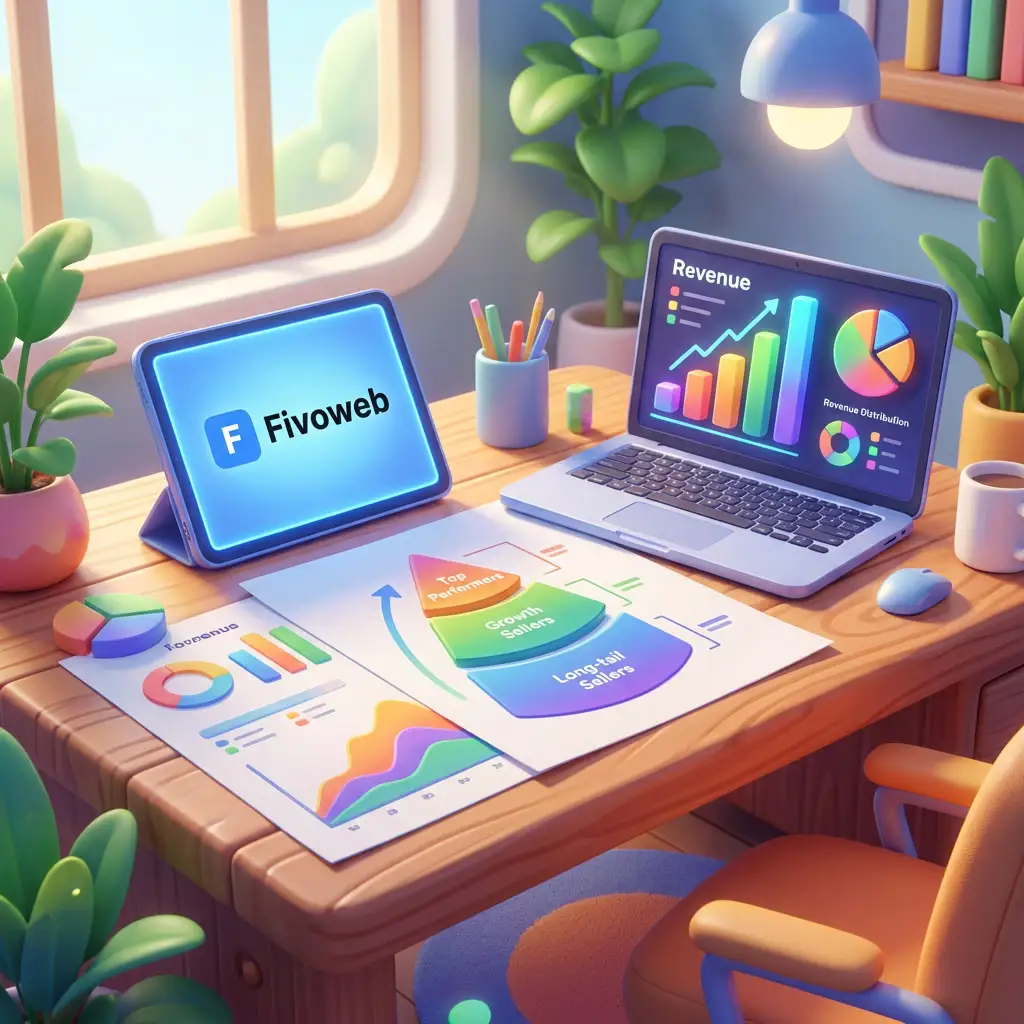
Seller Segmentation: The Missing System Behind Profitable Marketplaces

Why Most Marketplaces Die at €1–3M GMV (And How to Avoid It)
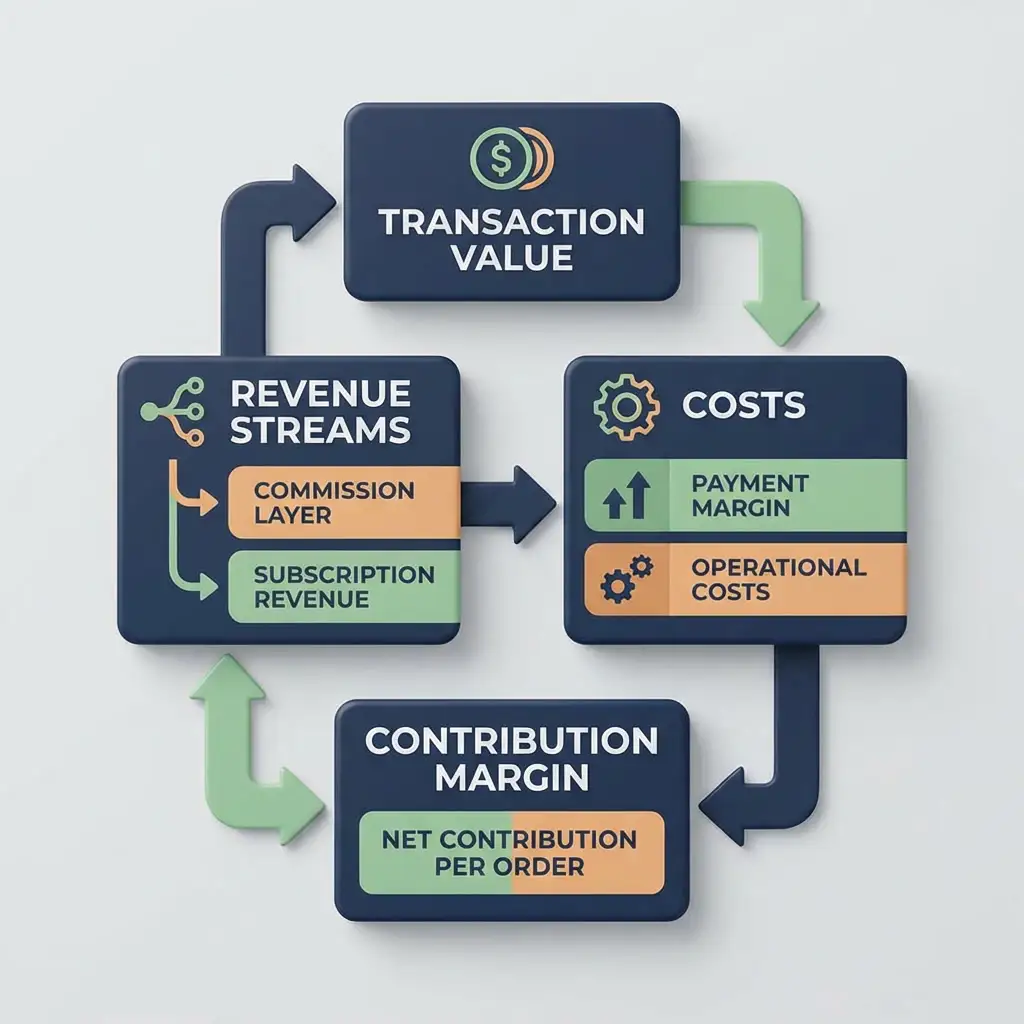
Marketplace Unit Economics: When Growth Actually Becomes Profitable
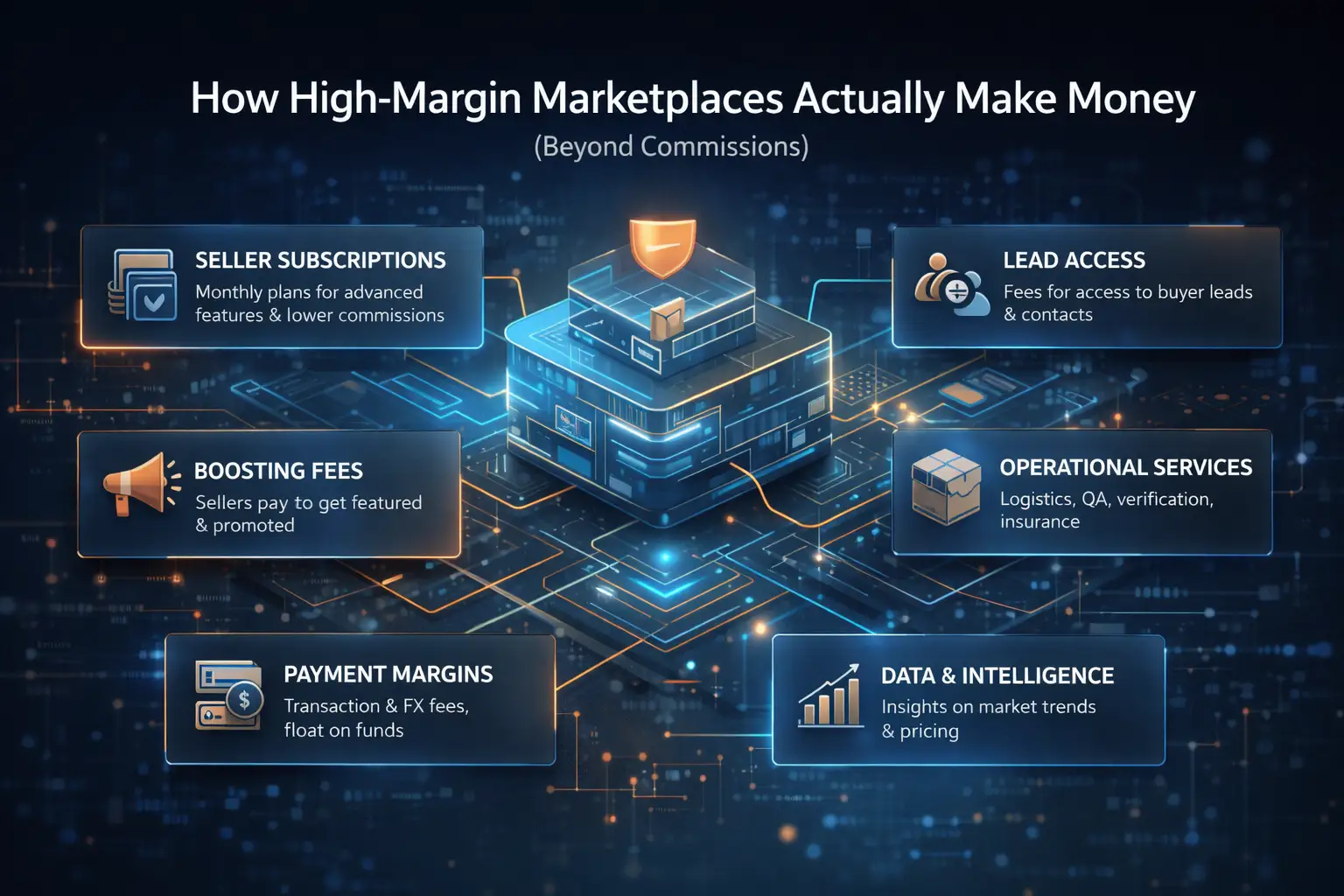
How High-Margin Marketplaces Actually Make Money (Beyond Commissions)
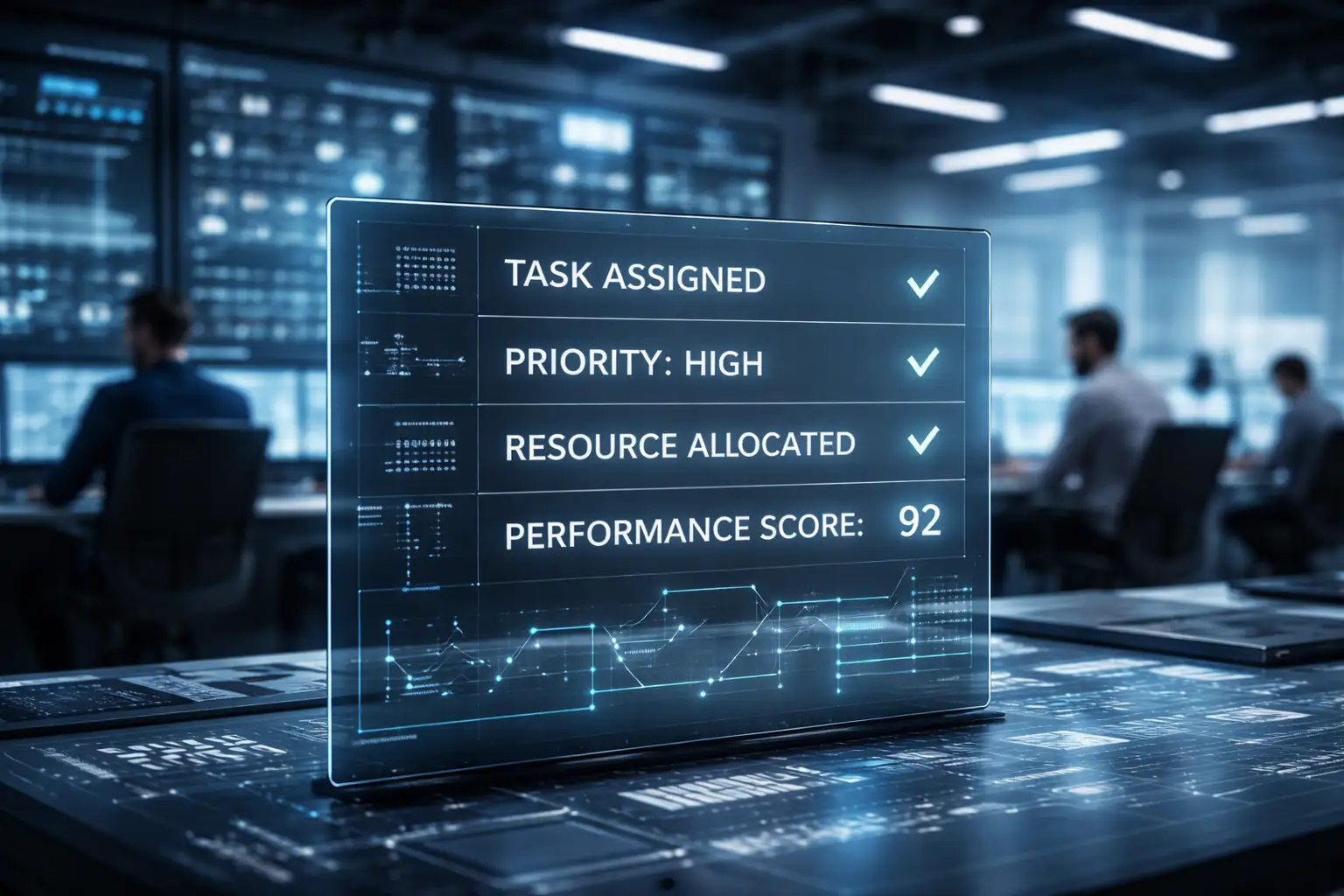
Algorithmic Middle Management: How Software Replaces Control Layers

The Rise of Internal Software: Why the Most Profitable Digital Products Are Built for Companies, Not
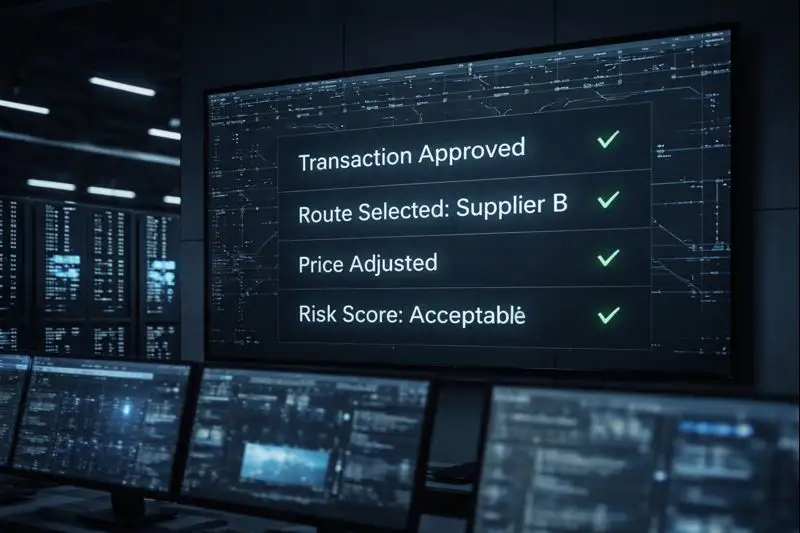
Decision-Centric Software: Why the Real Value of Digital Products Is Shifting from Features to Decis
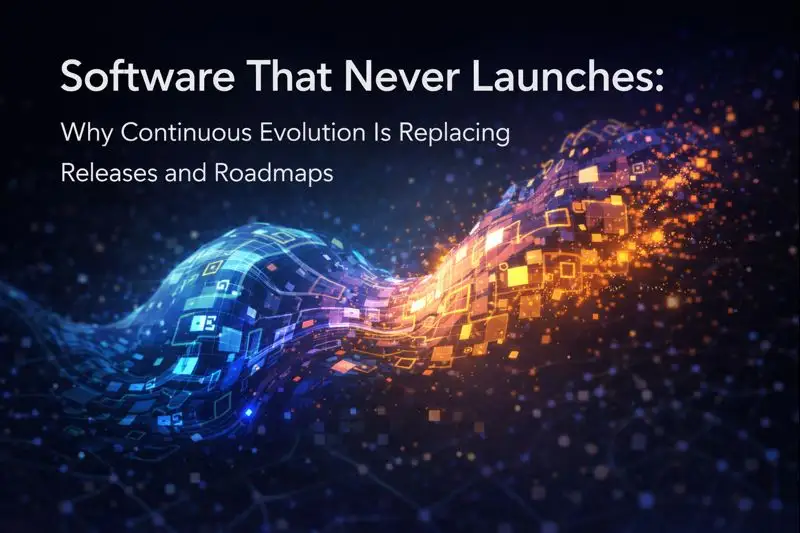
Software That Never Launches: Why Continuous Evolution Is Replacing Releases and Roadmaps
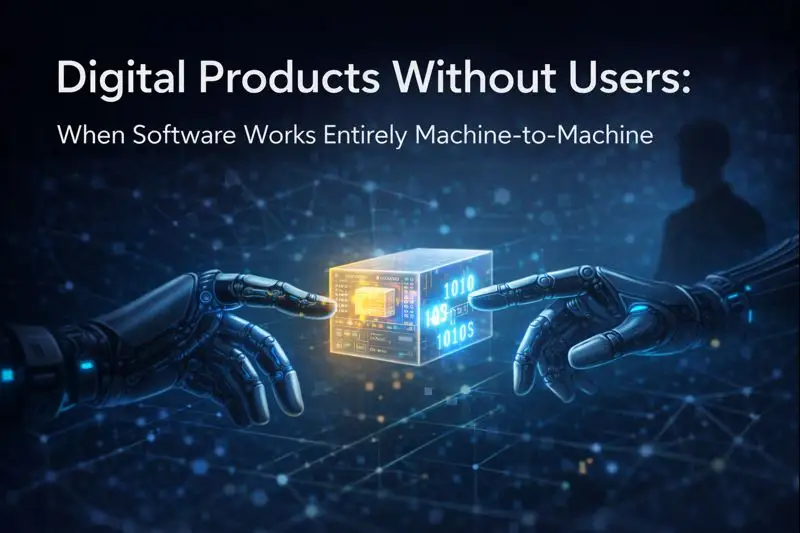
Digital Products Without Users: When Software Works Entirely Machine-to-Machine
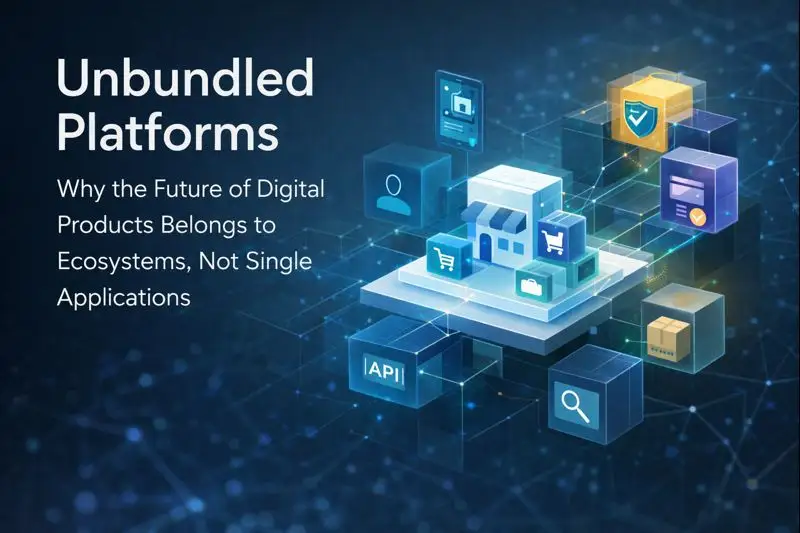
Unbundled Platforms: Why the Future of Digital Products Belongs to Ecosystems, Not Single Applicatio
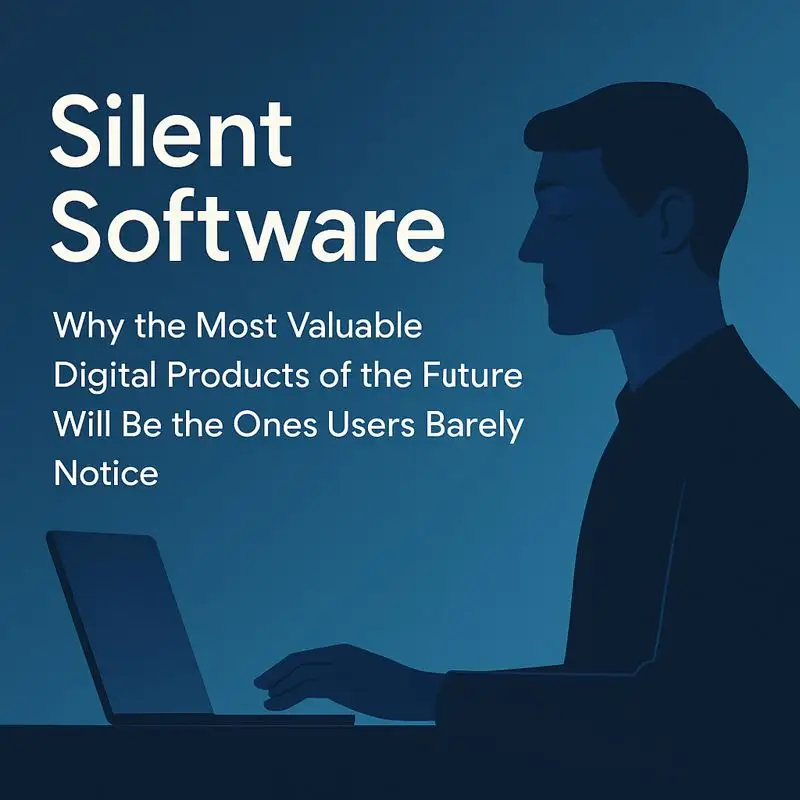
Silent Software: Why the Most Valuable Digital Products of the Future Will Be the Ones Users Barely
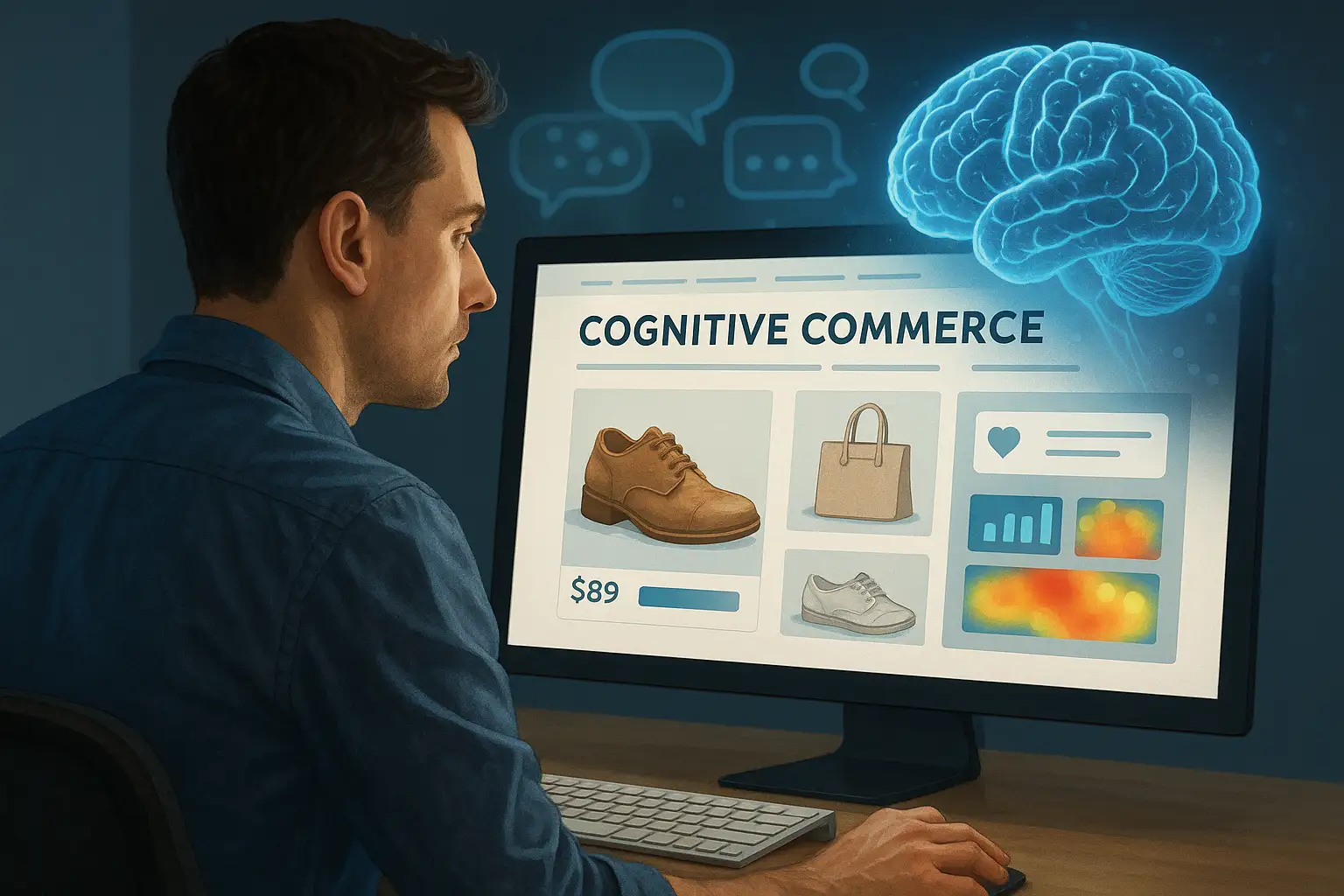
Cognitive Commerce: How AI Learns to Think Like Your Customers and Redefines Digital Shopping

Predictive UX: How AI Anticipates User Behavior Before It Happens

AI-Driven Product Innovation: How Intelligent Systems Are Transforming the Way Digital Products Are
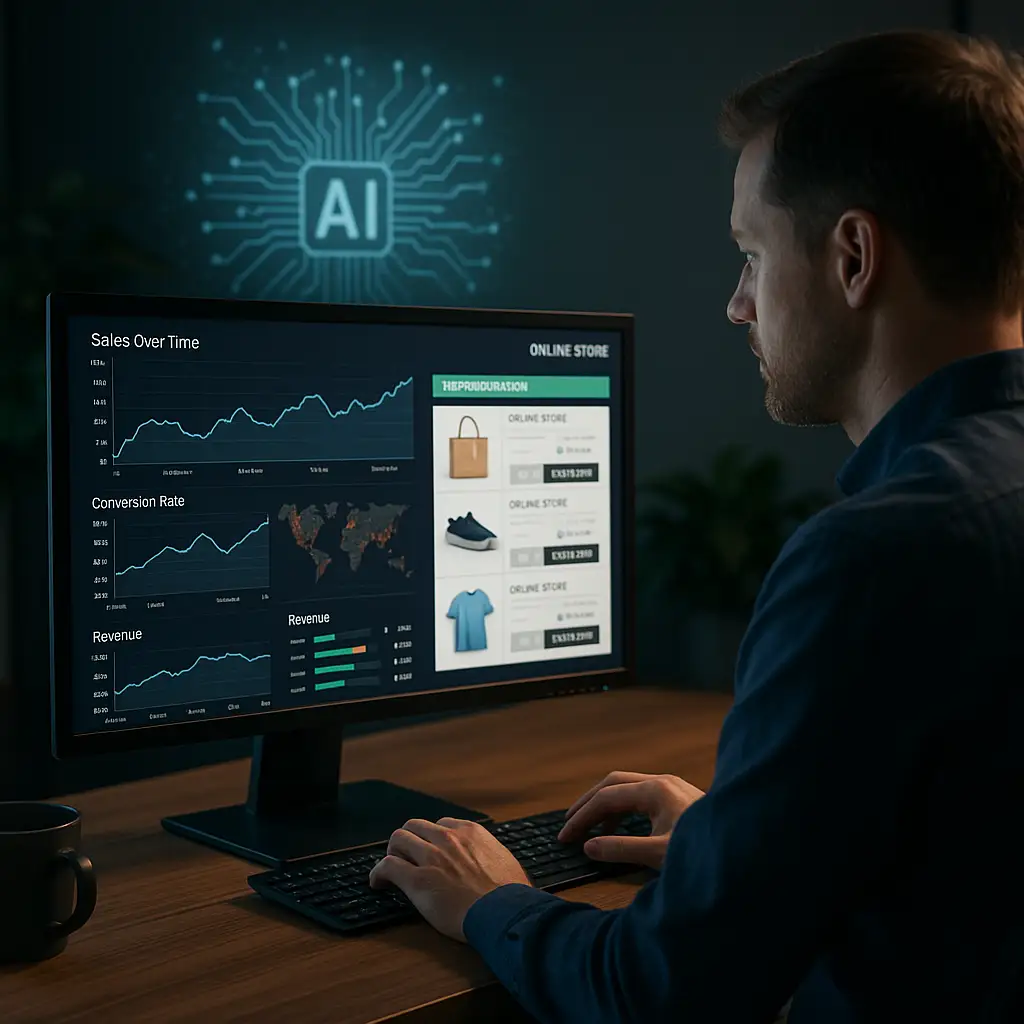
Adaptive Commerce: How AI-Driven Systems Automatically Optimize Online Stores in Real Time
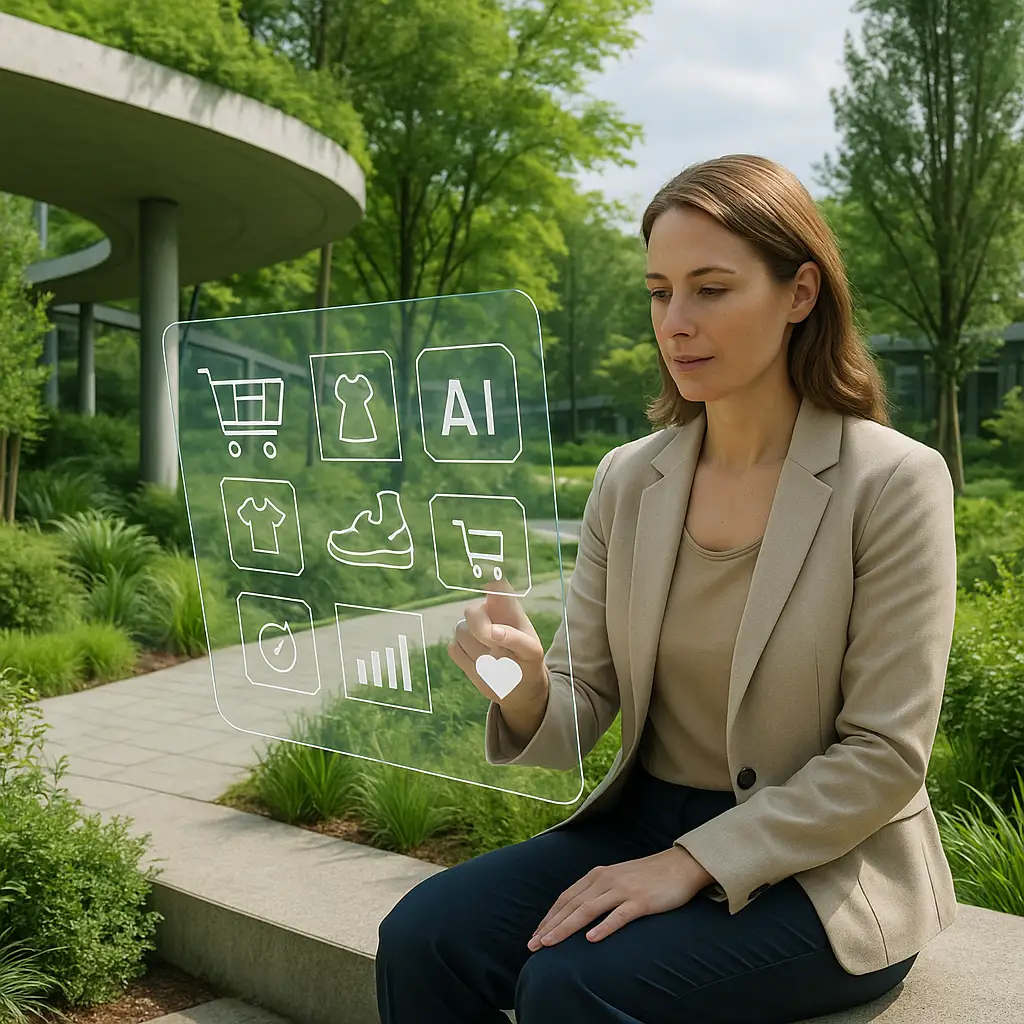
Zero-UI Commerce: How Invisible Interfaces Are Becoming the Future of Online Shopping

AI Merchandising: How Intelligent Algorithms Are Transforming Product Discovery in Modern E-Commerce

Composable Commerce: How Modular Architecture Is Reshaping Modern E-Commerce and Marketplace Develop

Context-Aware Software: How Apps Are Becoming Smarter, Adaptive, and Environment-Responsive
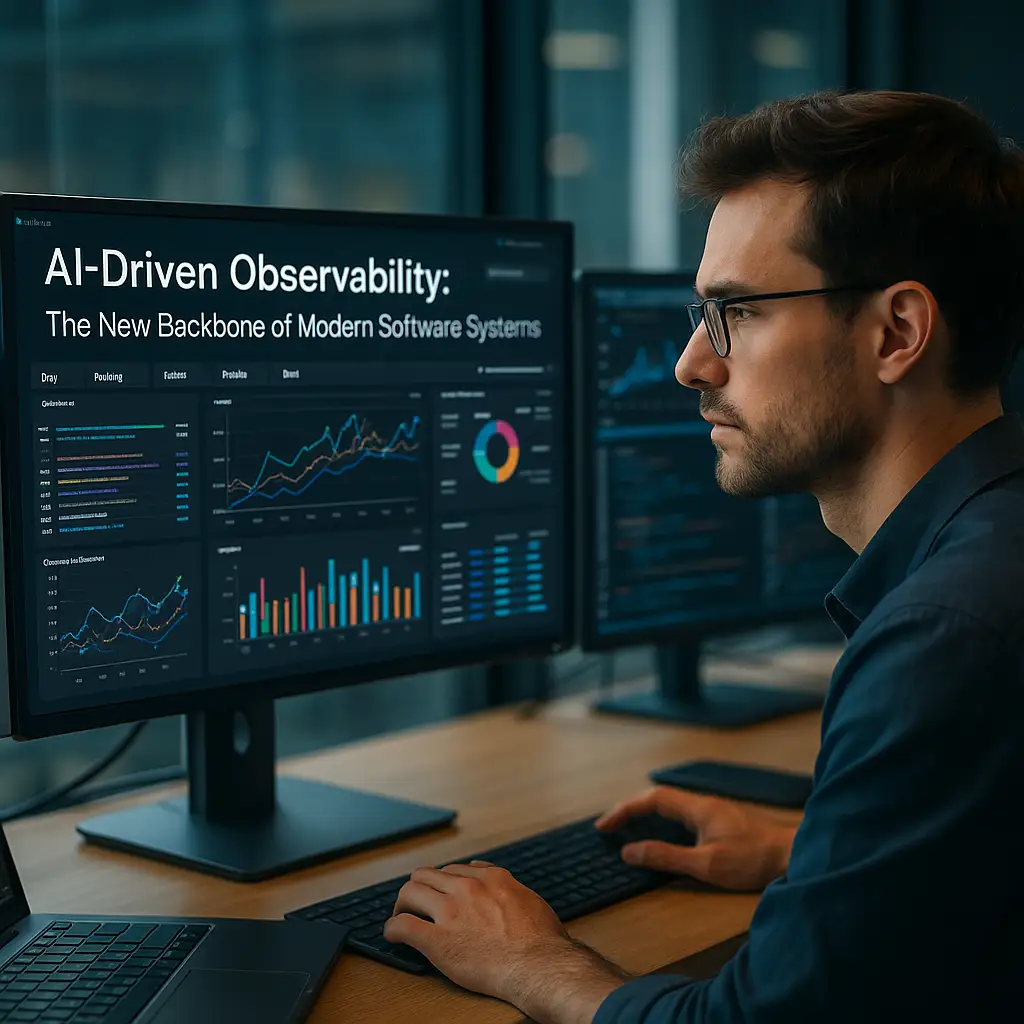
AI-Driven Observability: The New Backbone of Modern Software Systems

Hyper-Personalized Software: How AI Is Creating Products That Adapt Themselves to Every User

Edge Intelligence: The Future of Smart, Decentralized Computing

AI-Powered Cybersecurity: How Intelligent Systems Are Redefining Digital Defense

Modern Software: How Our Company Is Reshaping the Technology Landscape

From Digital Transformation to Digital Maturity: Building the Next Generation of Tech-Driven Busines

AI Agents: The Rise of Autonomous Digital Workers in Business and Software Engineering

Synthetic Data: The Next Frontier of AI and Business Intelligence

Design Intelligence: How AI Is Redefining UX/UI and Digital Product Creativity
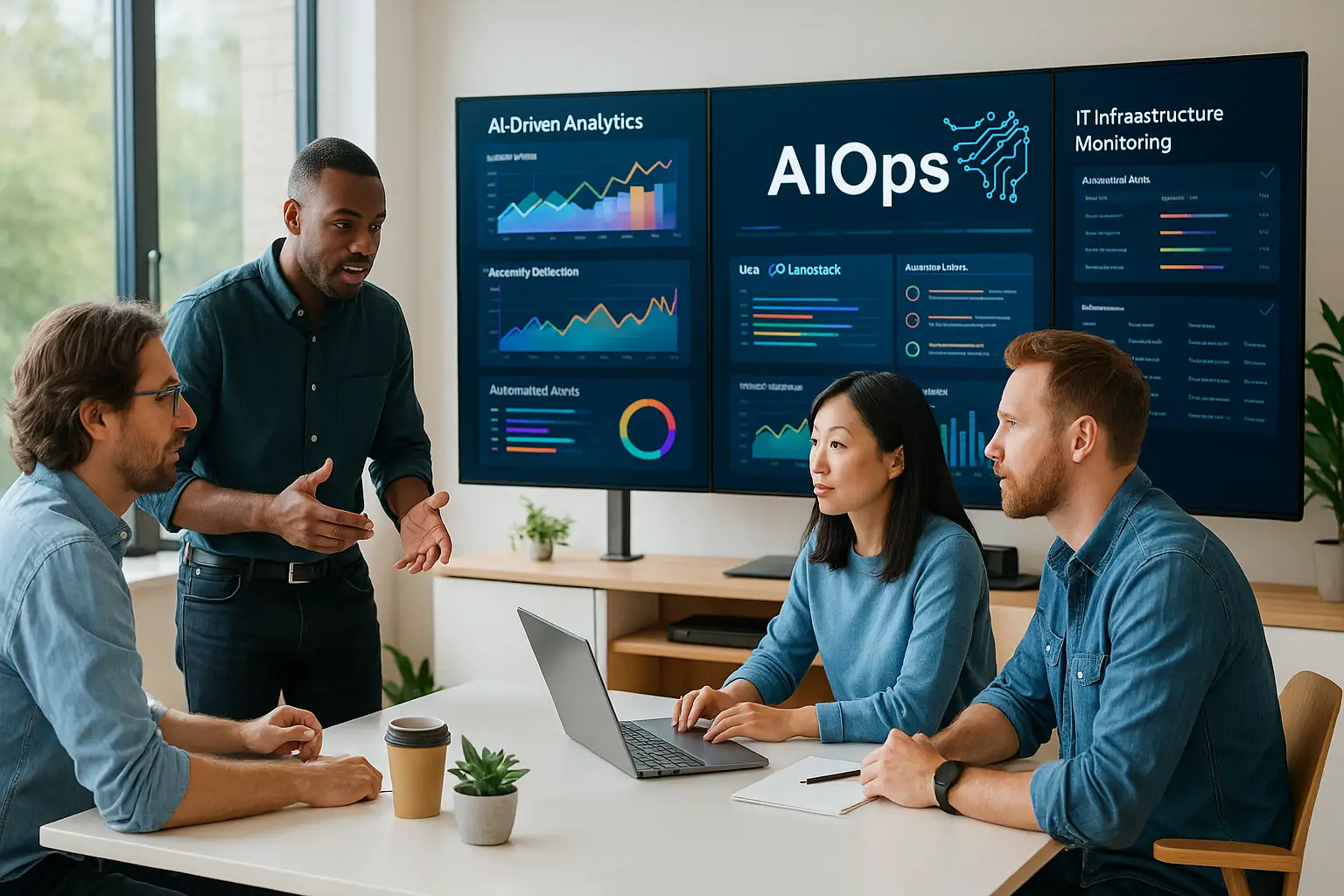
How Artificial Intelligence Is Transforming DevOps and IT Infrastructure
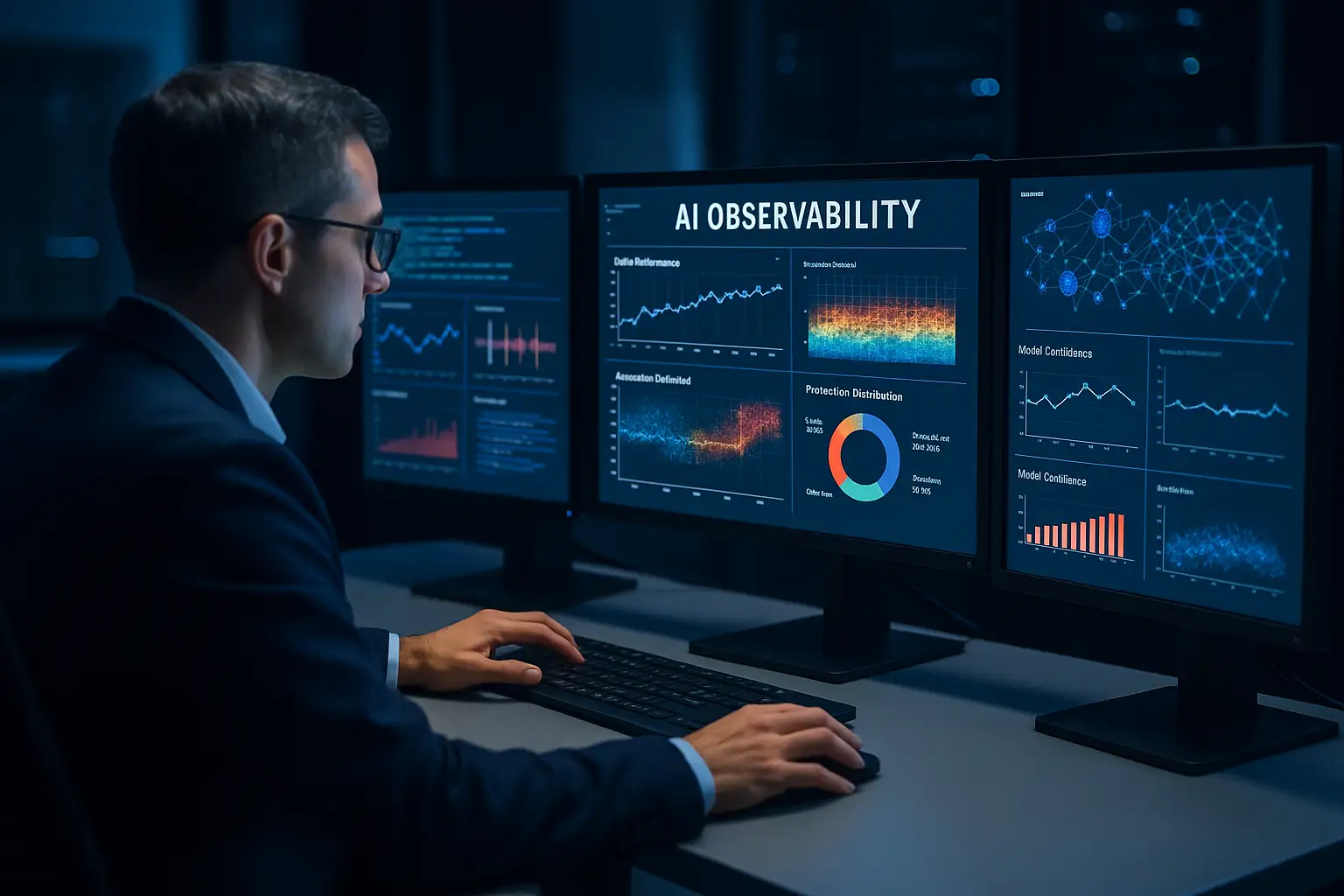
AI Observability in Production: Monitoring, Anomaly Detection, and Feedback Loops for Smart Applicat

Low-Code Revolution: How Visual Development Is Transforming Software and Marketplace Creation

Composable Marketplaces: How Modular Architecture Is the Future of Platform Engineering
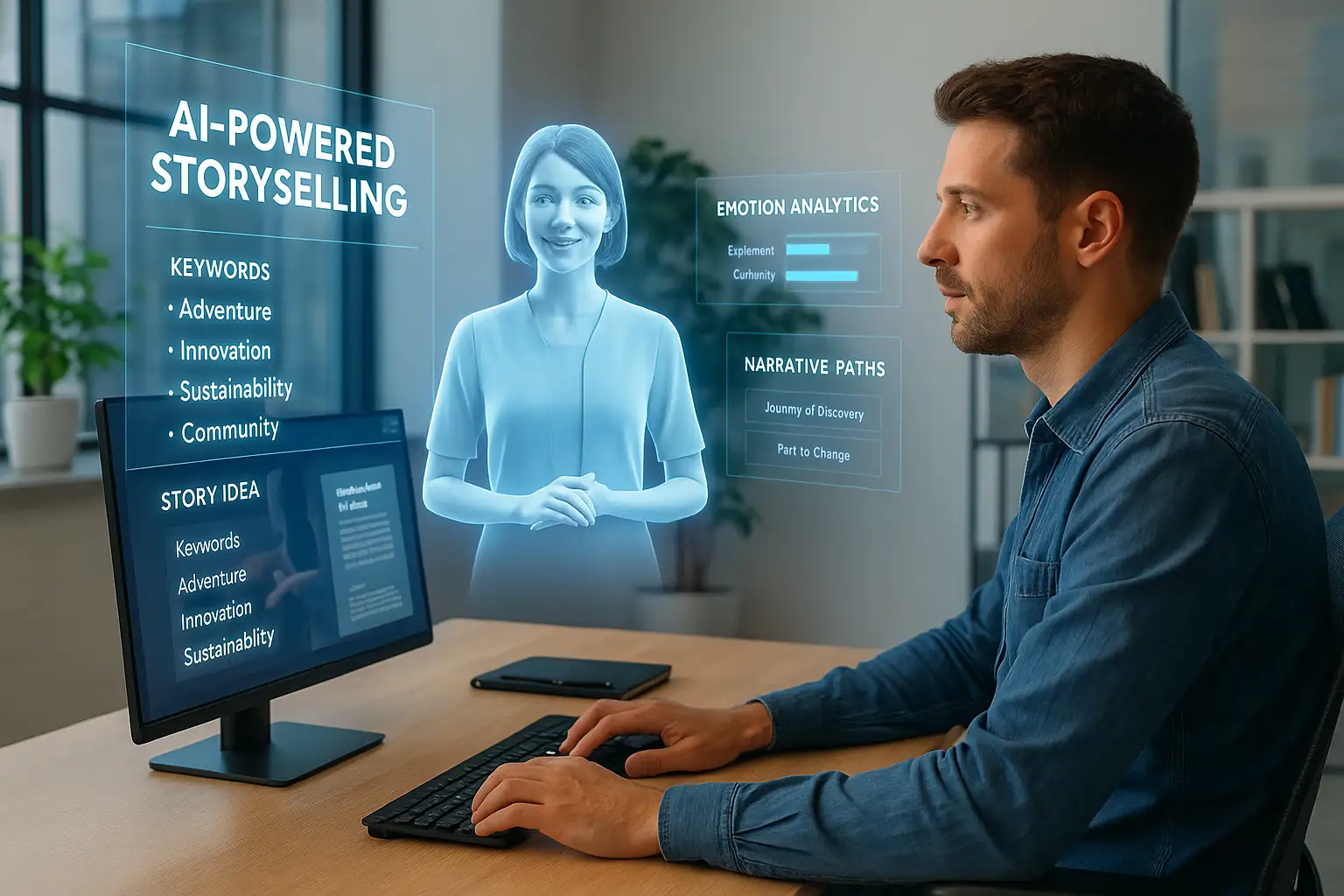
AI-Powered Storyselling: How Artificial Intelligence Is Reinventing Brand Narratives

The Era of Invisible Commerce: How AI Will Make Shopping Disappear by 2030
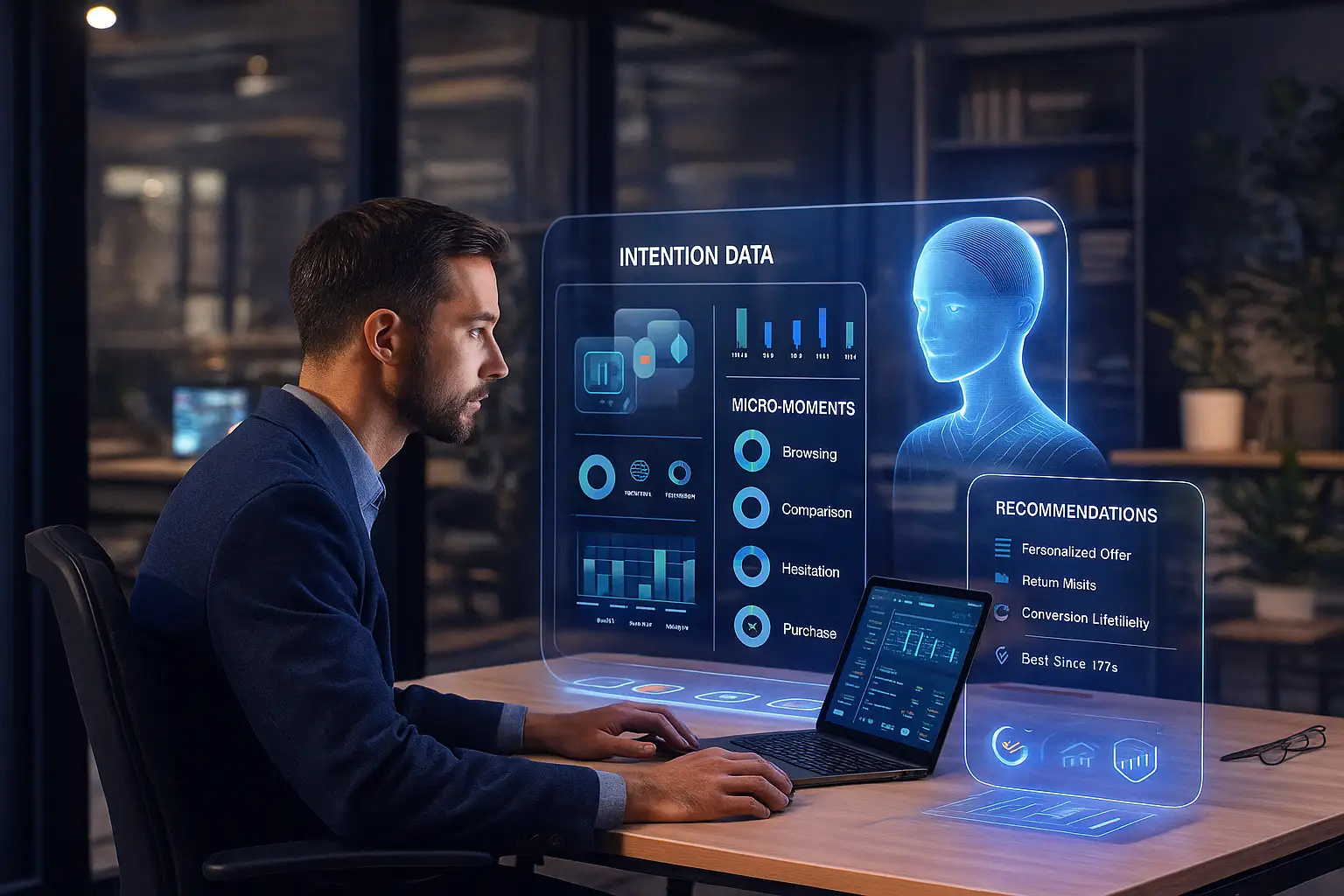
From Attention to Intention: The New Era of E-Commerce Engagement
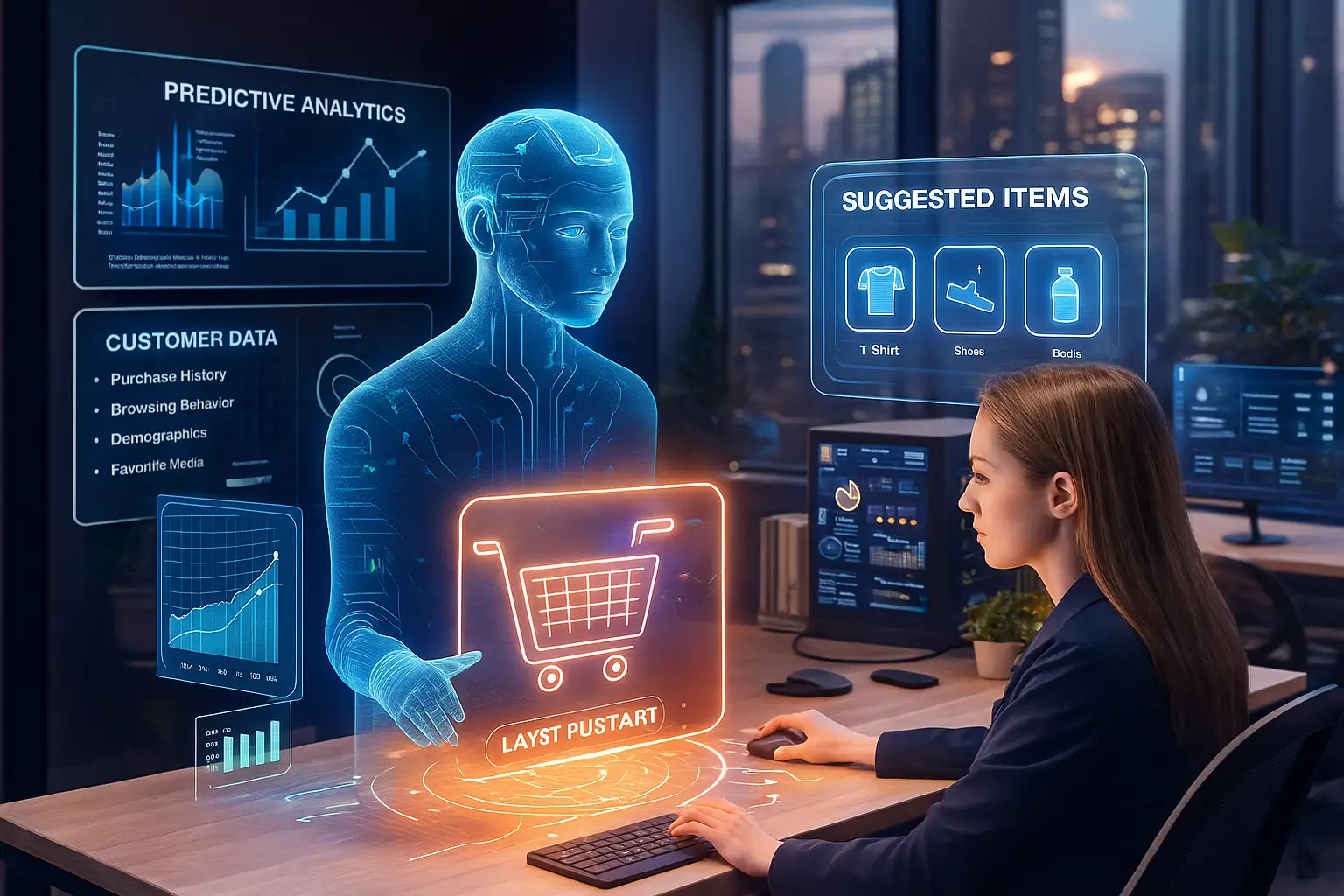
Predictive Commerce: How AI Can Anticipate What Your Customers Will Buy Next

Digital Trust 2030: How AI and Cybersecurity Will Redefine Safety in the Digital Age

Cybersecurity in the Age of AI: Protecting Digital Trust in 2025–2030
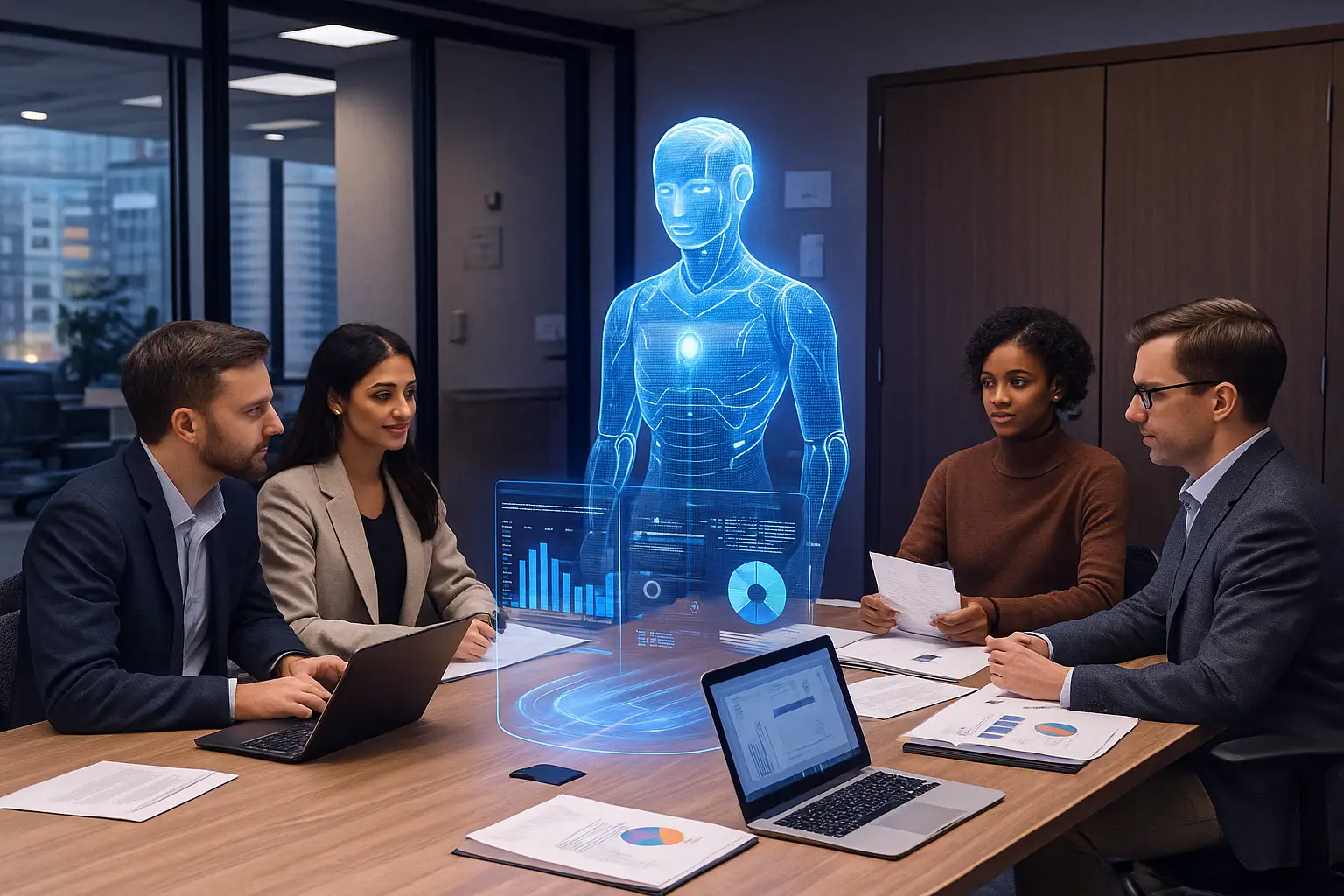
The Future of Work: Humans and AI as Teammates

Green IT: How the Tech Industry Must Adapt for a Sustainable Future

Emerging Technologies in IT: What Will Shape 2025–2030

Growth Marketing – A Fast-Track Strategy for Modern Businesses
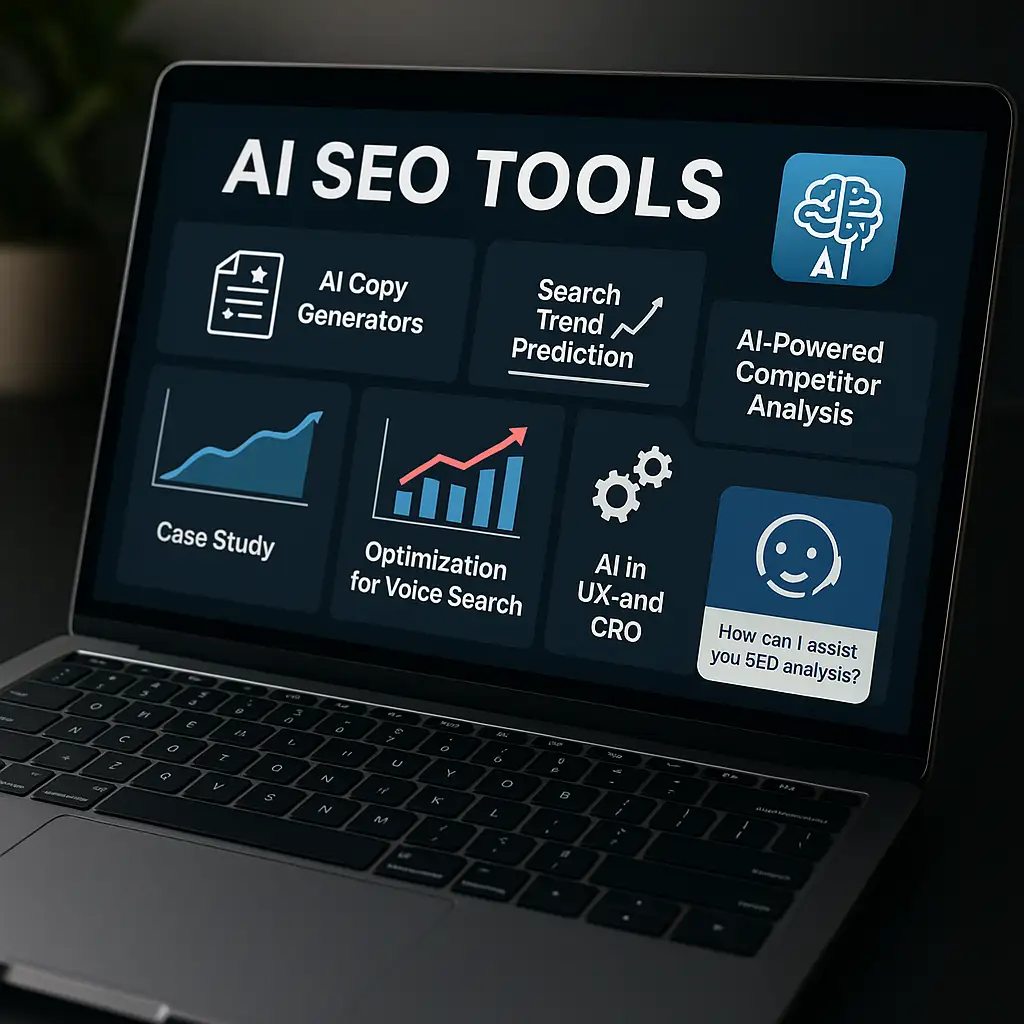
AI SEO Tools – 5 Technologies Revolutionizing Online Stores
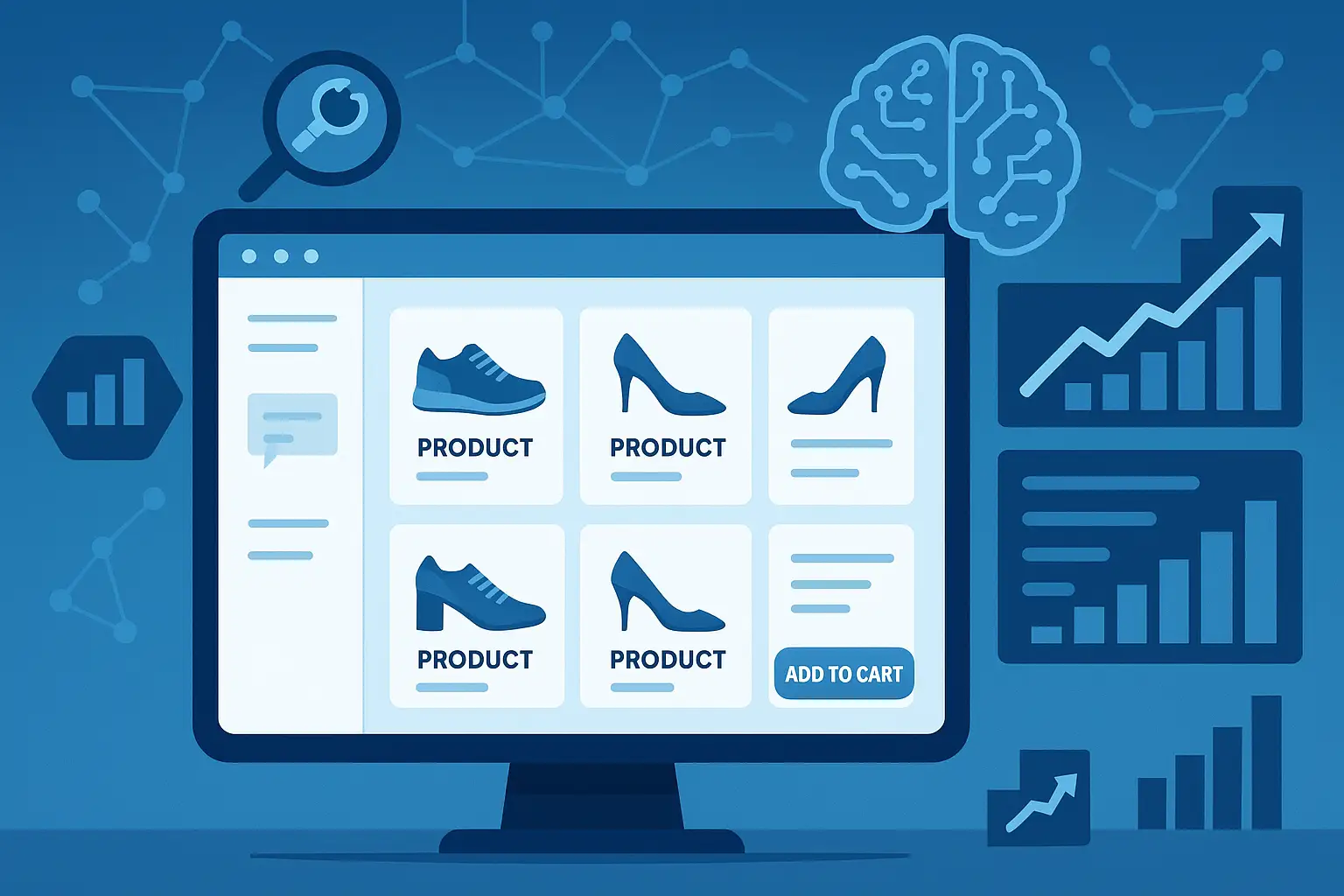
AI SEO – How Artificial Intelligence Is Transforming Online Store Optimization

Product-Led Growth – When the Product Sells Itself

Technology in IT – Trends Shaping the Future of Business and Everyday Life

Marketplace Growth – How Exchange Platforms and E-commerce Build the Network Effect
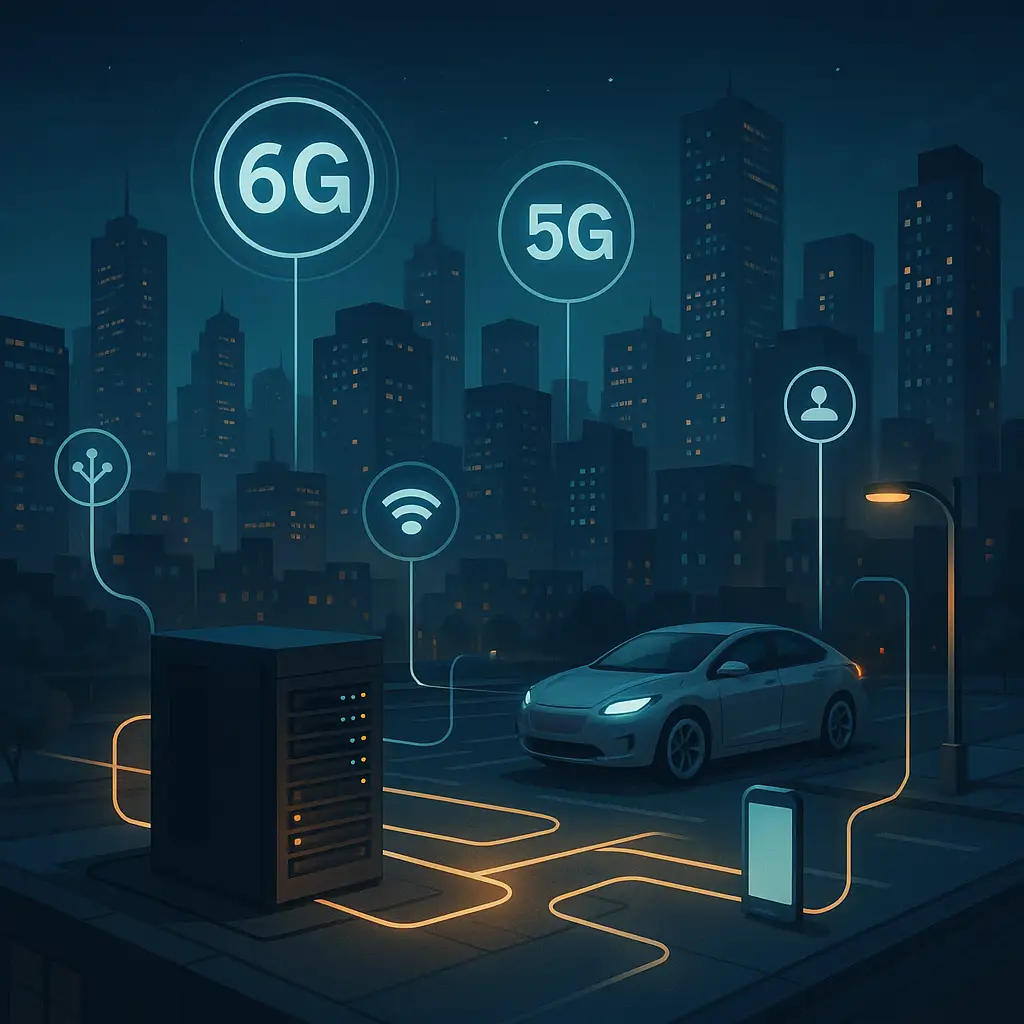
Edge Computing – Bringing Processing Power Closer to the User

Agentic AI in Applications – When Software Starts Acting on Its Own
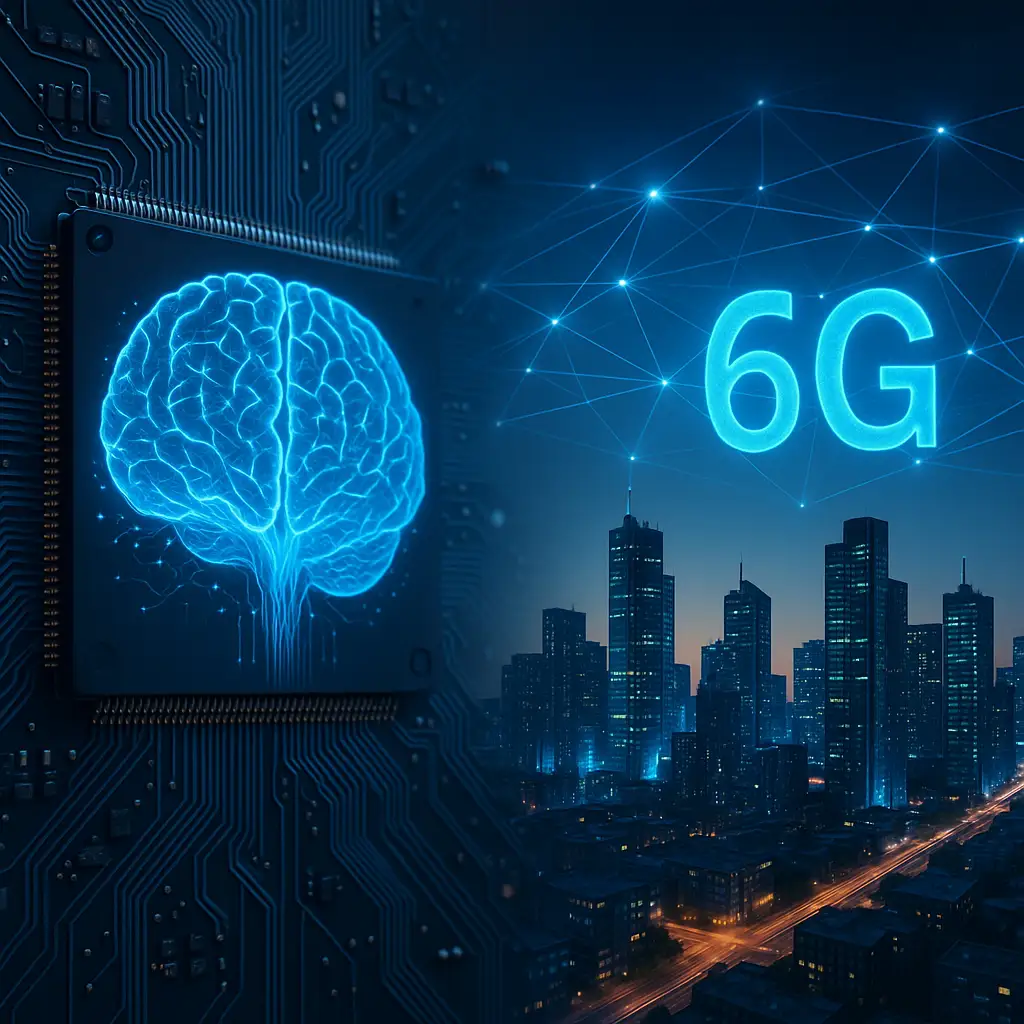
Neuromorphic Computers and 6G Networks – The Future of IT That Will Change the Game

Meta Llama 3.2 – The Open AI That Could Transform E-Commerce and SEO
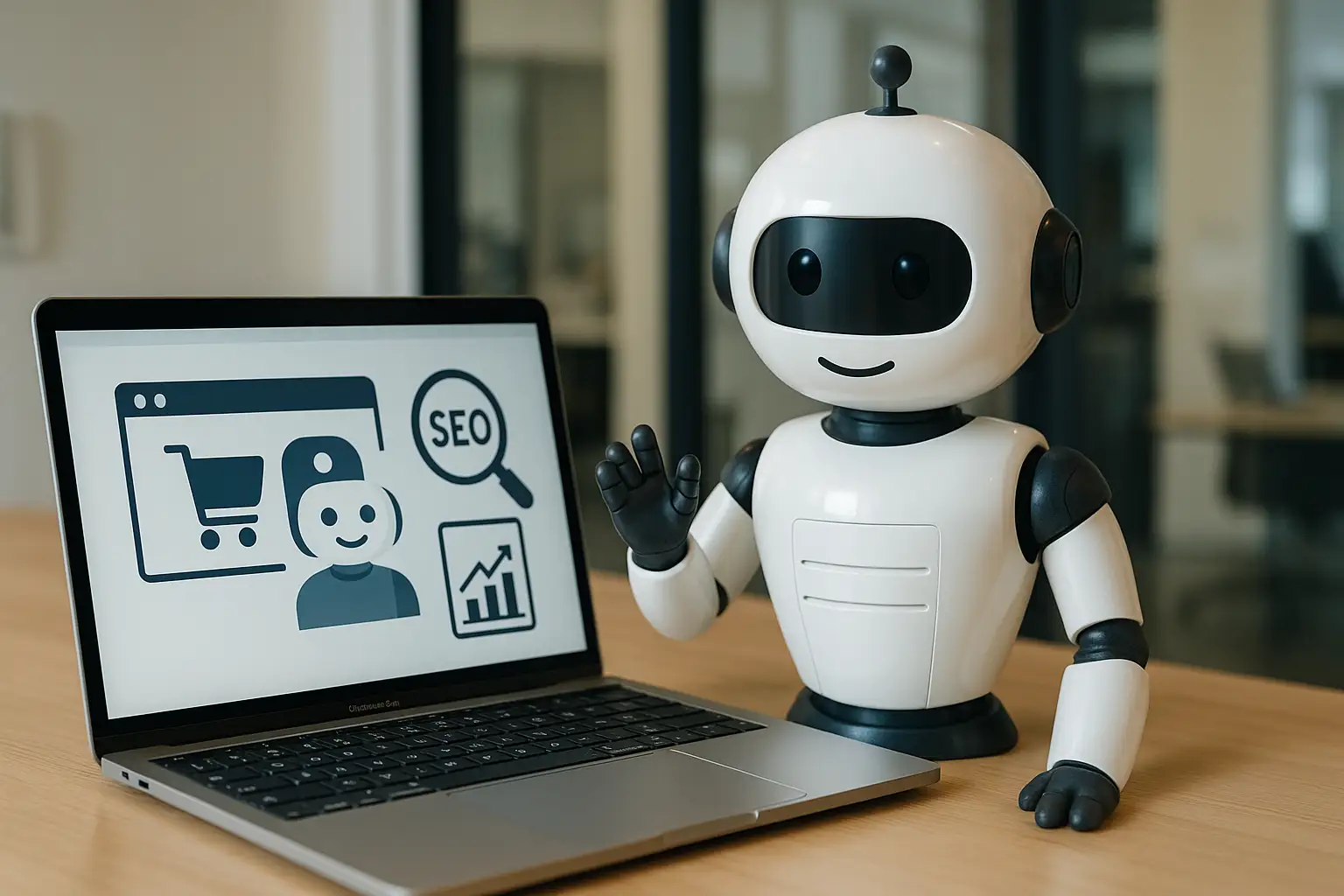
AI Chatbot for Online Stores and Apps – More Sales, Better SEO, and Happier Customers

5 steps to a successful software implementation in your company

Innovative IT solutions — why invest now?

Innovative software development methods for your business

5 steps to successfully implement technological innovation in your company
